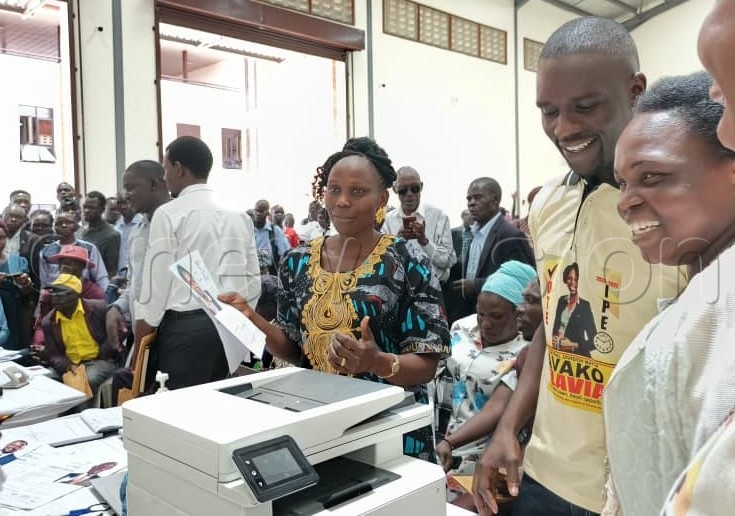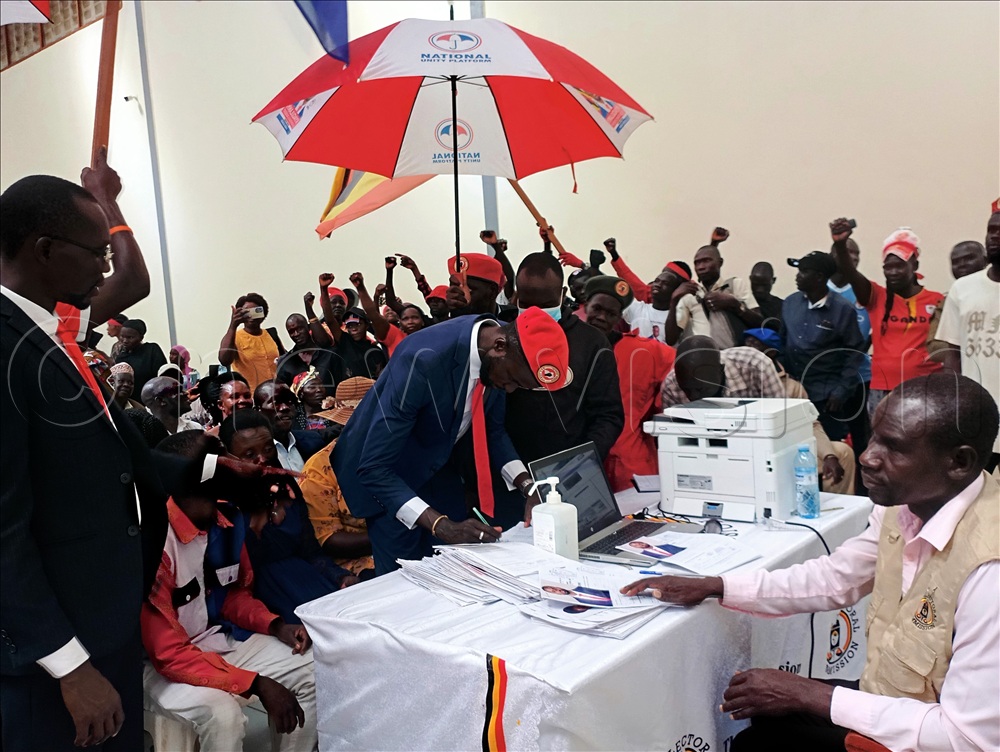Two women join three men in Arua city central division mayoral race
This marks a step toward gender inclusivity in a region where female leadership in local government has historically been limited.
Nezima Ocokoru consulting his boss Wadri Kasiano Ezati during the nomination exercise. (Photos by Prossy Nankanja)
By Prossy Nankanja
Journalists @New Vision
________________
Arua’s political landscape is set for a shift as the Electoral Commission (EC) finalises nominations for the 2026 mayoral race in the city's central division, with two women joining three male contenders in a fiercely contested battle.
This marks a step toward gender inclusivity in a region where female leadership in local government has historically been limited. The five candidates, spanning party lines and independent platforms, are vying to address urgent issues including corruption, infrastructure decay and citizen empowerment in Uganda’s bustling West Nile region.
The contenders
Nezima Ocokoru of the Alliance for National Transformation (ANT) party
A seasoned leader with deep roots in Arua’s governance, Ocokoru first rose to prominence as LC3 chairperson for Arua Hill Division in 2016 under the FDC ticket. After succeeding the late Romano Matua, she switched to the ANT party in 2021 to contest for mayor—a role she now seeks to reclaim. Her campaign centres on demystifying citizens’ rights.
"I’ve been a leader here, and ignorance is central division’s biggest challenge. People pay heavy taxes but don’t know how to demand quality services. I’ll empower citizens to understand their roles, speak up, and claim their rights," she said.
Flavia Avako (Independent)
As a climate change trainer with TEAM Africa, Avako brings grassroots expertise to the race. Her platform confronts corruption head-on, which she identifies as the primary barrier to Arua’s development.
Flavia Avako being nominated at EC regional offices.
"Corruption here is overwhelming. Citizens pay taxes but can’t access quality services. My strategy is to mobilise stakeholders as whistleblowers to expose and avert this crisis," she said, emphasizing community-led accountability.
Yassa Kato of the National Unity Platform (NUP)
The 32-year-old NUP candidate embodies the "hustler" narrative, having started as a motorcycle mechanic in Arua after completing O'Level education. His journey, from bodaboda work in Juba to operating at Majibu Stage, fuels his focus on infrastructure and sanitation.
NUP's Yassa Kato signing after his nomination.
"Central Division’s roads remain incomplete due to corruption. We’re choked by garbage, and streetlights lie broken from poor maintenance. If elected, I’ll turn this around," Kato said, targeting youth through tangible service delivery.
Saidi Baguma of the National Resistance Movement (NRM)
A commercial lawyer and construction business owner, Baguma clinched the NRM ticket by defeating seasoned rivals like former mayor Charles Asiki. His manifesto champions radical inclusivity.
"I envision a city where Muslims, the rich, and the poor all benefit equally from government programs. Arua must be vibrant and adaptable for every resident," he said.
Wahab Alega (Independent)
After losing the NRM primaries, Alega entered the race as an independent, a wildcard in a contest dominated by party machinery. Though less detailed in public statements, his presence underscores the competitive stakes.
Overlapping priorities
The candidates’ overlapping priorities, including health, education and anti-corruption, reflect the city's central division’s acute challenges. With roads crumbling, waste management collapsing and citizens disillusioned by unfulfilled tax promises, the next mayor will inherit a city demanding urgent transformation.
Avako’s call for anti-corruption "whistleblowers," Ocokoru’s rights-awareness drive, and Kato’s infrastructure pledges reveal a shared understanding: Arua’s growth hinges on restoring trust between leaders and citizens. Meanwhile, Baguma’s inclusivity vision offers a counterpoint to the division’s historical political fractures.
